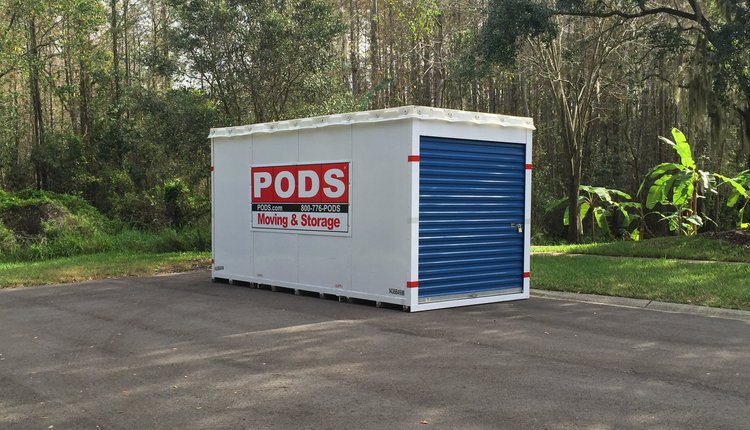My article on the misapplication of residential fees by one or more carriers in the parcel industry moved some carrier reps to post comments that UPS does have data on what addresses are strictly commercial, and contend that UPS automatically detects the presence of an erroneous residential fee that has been applied and proactively refunds to the payer the misapplied accessorial charge. I certainly applaud this attempt to provide an equitable solution using technology to prevent overcharging. I must point out however that in speaking with some in the auditing world they have confirmed my suspicions that this carrier applied self-auditing process is not perfect or free of defect and that misapplied fees are not caught 100% of the time by the carrier and that the auditing world still chases down the misapplied fees.
So Caveat Emptor.
The admonition to shippers is “trust – but verify”.
It appears that the use of years of shipment data, by at least one carrier, is a step in the right direction toward Manning Up. And that thought has sent my mind to the question “why don’t they do this in other areas where they have lots of data?” in particular, when it comes to the issue of the service guarantee.
The big carriers have numerous tracking scans commencing when the carrier picks up a shipment and then finalizing the transaction with a scan when the shipment is delivered.
The carrier knows, at the time they receive the shippers’ shipment data, what level of service has been selected, what the shipment weighs, whether it is hazardous and so on and most important they know what address and zip code the shipment is being delivered to. From this data the carriers should know (or can easily determine) the guaranteed date and time of the expected delivery. Since they know when the package is delivered they can therefore easily discern if the guarantee was met, or not, on that particular shipment and if not whether the cause of the delay was in its control.
There is a lengthy list of root cause codes that carrier operations management can enter to exempt a particular shipment, or numerous shipment’s, from the service guarantee. A recent example would be Hurricane Sandy or the big snowstorm the Northeast experienced. Operations can mass apply “delayed due to weather” all the shipments in a terminal, a truck, or an aircraft. Operations personnel are normally quick to do this, because operations management at most delivery companies is measured by their seniors, predicated on their on-time delivery performance.
Other exemption codes are things like “attempted delivery”, bad address, bad zip, recipient not available and so on. This process of applying “root cause” information is extremely disciplined by operations because of the reason stated above. The managers don’t want to miss their performance numbers, as it my effect compensation and or promotion.
So if we apply logic to this scenario, the carriers know if they fail, and they know which packages failed service due to factors within their control, and when a package failed through no fault of the carrier.
If the carriers really walked the walk, they would man up and automatically refund the shipping charges for those shipments where there was a failure and there is no reason to exempt the shipment from the guarantee. Would this not be a fair and equitable way to keep the shippers whole, rather than making the shippers audit their bills, filing for refunds for the service failure claims, having then to research those claims on the carrier side and to honor or deny the claims based on their merit? Isn’t this forced filing process a mutually destructive behavior?
Now I don’t think any carrier rep would ever admit that their company’s service is perfect. The reality is that from time to time, the carriers do fail to make the service commitment, and sometimes it’s within their control.
Since I don’t expect the carrier reps to volunteer to a customer that their firm might have the ability to pre-audit and automatically refund the monies for those transactions that failed through their fault, just as UPS reps claim that UPS does with misapplied residential surcharges let’s discuss some options. I have heard anecdotally that carriers may in fact already have this functionality and provide this pre-audit service to a shipper if the carrier is pressed to do so. My first recommendation then to shippers, is to bring up the fact that the carrier fails, that due to their service guarantee your employer is due a refund if the failure is the carriers fault, and you would like them to pre-audit and refund (or zero bill) the monies on shipments where they failed and there is no exempting reason. Another way to get to the same place is to have the carrier refund to you monthly a percentage of your freight spend, and you in turn abdicate the right to file service claims. It’s easy to determine what percentage keeps you whole if you currently conduct an audit or have an audit company that does the recovery for you. Another approach is to have the carrier increase their discounts you receive to keep you whole and again abdicate the right to file service failure claims. Your employer will not receive any lesser service on your shipments if you provide this abdication and if the service is ever noticeably eroding it will not be the result of the service guarantee abdication and you call in the carrier for an explanation and a remedy plan or you terminate them.
Keep in mind that if your company is using the services of a freight audit firm that files for service claims, then chances are you are may be splitting what they recover and the three strategies articulated above leaves you ahead financially. I’m not saying that you should discontinue using the services of a freight bill audit firm, I am saying that you may have to rethink how much you pay them and the process by which you compensate them, for the services they provide. By the way the split of what these companies provide for that service is very negotiable. It could be 75/25 and not 50/50 as I have seen in some contracts.
But I would like to revisit the initial premise, “That carriers should man up and provide self-pre-audit on all their shipments. I am not saying that the carriers should receive any less margin than they do today. My contention is, if they are truly customer centric, then calculate how much it would cost to self-pre-audit and refund, if they have not already done so, and increase the base rates to cover for the revenue dilution that would occur. This is fair to every shipper (in particular those that never file for service failure claims) and its fair to the carrier. But it’s the most honest approach at the end of the day and if the carriers want to improve their margins then they can do so by improving their level of service from where it is today. Now there is a real incentive for service improvement isn’t it.
Just one man’s opinion, I could be wrong.
So Caveat Emptor.
The admonition to shippers is “trust – but verify”.
It appears that the use of years of shipment data, by at least one carrier, is a step in the right direction toward Manning Up. And that thought has sent my mind to the question “why don’t they do this in other areas where they have lots of data?” in particular, when it comes to the issue of the service guarantee.
The big carriers have numerous tracking scans commencing when the carrier picks up a shipment and then finalizing the transaction with a scan when the shipment is delivered.
The carrier knows, at the time they receive the shippers’ shipment data, what level of service has been selected, what the shipment weighs, whether it is hazardous and so on and most important they know what address and zip code the shipment is being delivered to. From this data the carriers should know (or can easily determine) the guaranteed date and time of the expected delivery. Since they know when the package is delivered they can therefore easily discern if the guarantee was met, or not, on that particular shipment and if not whether the cause of the delay was in its control.
There is a lengthy list of root cause codes that carrier operations management can enter to exempt a particular shipment, or numerous shipment’s, from the service guarantee. A recent example would be Hurricane Sandy or the big snowstorm the Northeast experienced. Operations can mass apply “delayed due to weather” all the shipments in a terminal, a truck, or an aircraft. Operations personnel are normally quick to do this, because operations management at most delivery companies is measured by their seniors, predicated on their on-time delivery performance.
Other exemption codes are things like “attempted delivery”, bad address, bad zip, recipient not available and so on. This process of applying “root cause” information is extremely disciplined by operations because of the reason stated above. The managers don’t want to miss their performance numbers, as it my effect compensation and or promotion.
So if we apply logic to this scenario, the carriers know if they fail, and they know which packages failed service due to factors within their control, and when a package failed through no fault of the carrier.
If the carriers really walked the walk, they would man up and automatically refund the shipping charges for those shipments where there was a failure and there is no reason to exempt the shipment from the guarantee. Would this not be a fair and equitable way to keep the shippers whole, rather than making the shippers audit their bills, filing for refunds for the service failure claims, having then to research those claims on the carrier side and to honor or deny the claims based on their merit? Isn’t this forced filing process a mutually destructive behavior?
Now I don’t think any carrier rep would ever admit that their company’s service is perfect. The reality is that from time to time, the carriers do fail to make the service commitment, and sometimes it’s within their control.
Since I don’t expect the carrier reps to volunteer to a customer that their firm might have the ability to pre-audit and automatically refund the monies for those transactions that failed through their fault, just as UPS reps claim that UPS does with misapplied residential surcharges let’s discuss some options. I have heard anecdotally that carriers may in fact already have this functionality and provide this pre-audit service to a shipper if the carrier is pressed to do so. My first recommendation then to shippers, is to bring up the fact that the carrier fails, that due to their service guarantee your employer is due a refund if the failure is the carriers fault, and you would like them to pre-audit and refund (or zero bill) the monies on shipments where they failed and there is no exempting reason. Another way to get to the same place is to have the carrier refund to you monthly a percentage of your freight spend, and you in turn abdicate the right to file service claims. It’s easy to determine what percentage keeps you whole if you currently conduct an audit or have an audit company that does the recovery for you. Another approach is to have the carrier increase their discounts you receive to keep you whole and again abdicate the right to file service failure claims. Your employer will not receive any lesser service on your shipments if you provide this abdication and if the service is ever noticeably eroding it will not be the result of the service guarantee abdication and you call in the carrier for an explanation and a remedy plan or you terminate them.
Keep in mind that if your company is using the services of a freight audit firm that files for service claims, then chances are you are may be splitting what they recover and the three strategies articulated above leaves you ahead financially. I’m not saying that you should discontinue using the services of a freight bill audit firm, I am saying that you may have to rethink how much you pay them and the process by which you compensate them, for the services they provide. By the way the split of what these companies provide for that service is very negotiable. It could be 75/25 and not 50/50 as I have seen in some contracts.
But I would like to revisit the initial premise, “That carriers should man up and provide self-pre-audit on all their shipments. I am not saying that the carriers should receive any less margin than they do today. My contention is, if they are truly customer centric, then calculate how much it would cost to self-pre-audit and refund, if they have not already done so, and increase the base rates to cover for the revenue dilution that would occur. This is fair to every shipper (in particular those that never file for service failure claims) and its fair to the carrier. But it’s the most honest approach at the end of the day and if the carriers want to improve their margins then they can do so by improving their level of service from where it is today. Now there is a real incentive for service improvement isn’t it.
Just one man’s opinion, I could be wrong.










